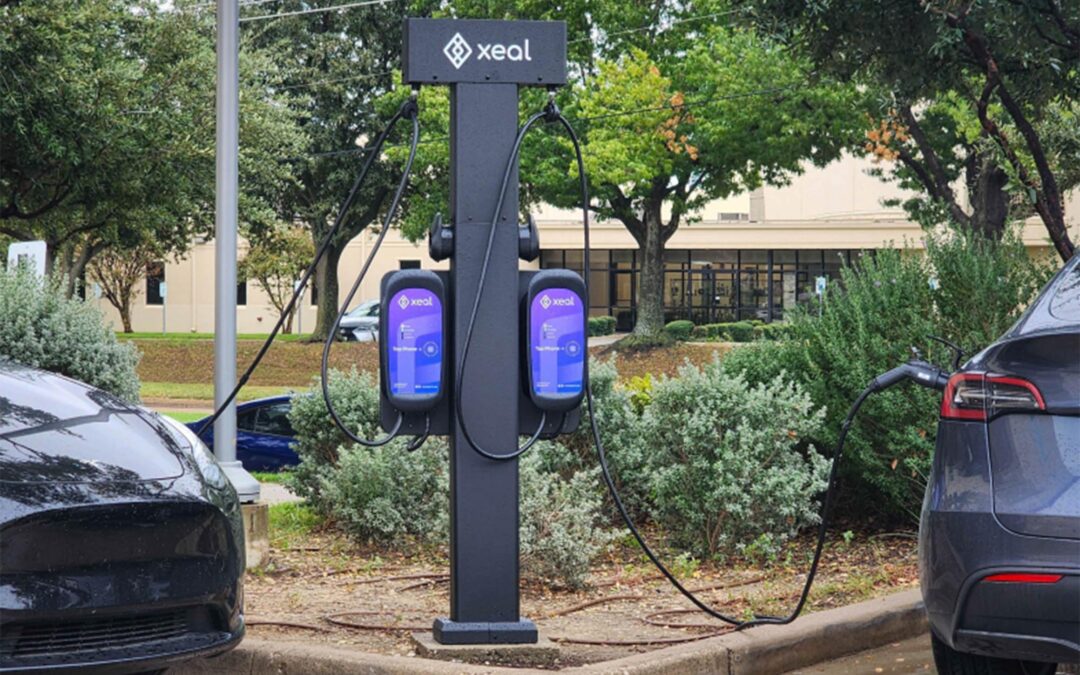Think about a Houston morning when the air is crisp, noise pollution is low, and electric cars slip quietly down wide boulevards. This isn’t some far-off fantasy—it’s a glimpse of our near future if we support and expand our EV charging infrastructure. More stations mean less range anxiety and more incentives to go electric. And hey, that future’s closer than you’d guess.
Why EV Charging Matters
Electric vehicle (EV) adoption has been picking up speed in recent years, and there’s no sign of a slowdown. Automakers are unveiling more affordable and efficient models, gas prices remain unpredictable, and global concern over climate change is stronger than ever. These combined factors have turned electric mobility from a niche choice into a mainstream topic.
But to truly drive the EV revolution, there’s a critical piece that can’t be overlooked: EV charging infrastructure. Having enough charging stations in the right places not only makes owning an electric car more convenient, it also helps potential buyers feel confident about their decision to switch. After all, no one wants to be stuck in traffic on a busy Houston highway with a blinking “low battery” sign and no charger in sight.
How Houston Fits In
Houston might traditionally be known as the “Energy Capital” centered around fossil fuels, but the city is increasingly becoming an epicenter for clean energy innovation. With more local stakeholders interested in sustainable solutions, a robust EV charging network seems like the logical next step. In a metropolitan area sprawling with suburbs, ensuring that drivers have a reliable way to power up is key to unlocking a cleaner, more flexible way of commuting.
The Environmental Benefits of Solid EV Infrastructure
The environmental advantages of electric vehicles are widely known, but they only become fully realized when EV charging infrastructure is both widespread and convenient. Let’s explore how this leads to a healthier, greener city—especially in a place like Houston that’s no stranger to smog alerts and ozone warnings.
Clean Air and Reduced Carbon Footprint
At the core of any EV conversation is the promise of lower emissions. Compared to gas-powered cars, EVs don’t churn out tailpipe pollution, meaning fewer greenhouse gases like carbon dioxide. Multiply that by thousands (or even millions) of vehicles, and you’re looking at a significant drop in harmful emissions that contribute to climate change.
When the power used to charge those EVs comes from cleaner energy sources—such as wind, solar, or natural gas—it further lowers the total carbon footprint. Texas is a major player in wind power production, so EV owners in Houston can indirectly tap into greener electricity as the grid gets cleaner.
Healthier Neighborhoods
Fewer gas-powered vehicles on the road translates to improved air quality. Poor air quality can aggravate respiratory conditions and increase healthcare costs for families and the broader community. By developing an EV charging network that supports widespread adoption, Houston could see a noticeable dip in asthma cases and other air pollution-related illnesses. Even small changes in average air quality can offer huge benefits for public health.
Supporting Green Goals
Many major U.S. cities have pledged to be carbon-neutral or significantly reduce their carbon emissions in the coming decades. Houston’s commitment to environmental progress makes expanding its EV charging stations not just a strategy for the future, but a practical, ongoing effort to meet these goals. The city’s leadership in renewable energy investment means it’s well-positioned to link EV charging networks with green power sources.
Further Reviewing the Economic and Social Impacts of EV Charging Infrastructure
Sustainability isn’t just about caring for the planet—it also opens doors to new business opportunities, jobs, and social improvements. Strong EV charging infrastructure has the potential to transform a city’s economic landscape.
Local Job Creation
When we talk about building or upgrading charging infrastructure, it’s not just about plugging in some chargers and calling it a day. There are many roles involved: electricians, construction crews, logistics planners, engineers, software developers—the list goes on. Creating and maintaining these stations can spark an ongoing demand for skilled workers.
As more drivers adopt EVs, related businesses—like repair shops specializing in electric motors or battery tech—will also thrive. By investing in EV charging infrastructure, Houston can set up entire new career pathways for residents, driving positive economic growth.
Incentives and Savings
It’s not just jobs that benefit, though. Governments often offer incentives (from tax credits to rebates) to promote EV adoption. For policymakers and city planners, leaning into clean transportation can open the door to funding from federal or state sustainability grants. This helps cities experiment with pilot programs, build more stations, and continue upgrading their infrastructure without relying solely on local budgets.
EV owners also enjoy some cost benefits. While electricity isn’t free, it often comes at a lower cost than gas over the long run, helping drivers save money—especially as EV technology evolves and becomes even more efficient.
Equitable Access
One critical piece of building a large-scale EV charging network is ensuring that it doesn’t just benefit wealthier neighborhoods or those who can afford private charging stations. Forward-thinking city plans must incorporate access for communities at all income levels. That could mean installing chargers in apartment complexes, public parking garages, and shared community spaces.
When local governments and community organizations work together to provide subsidized or low-cost charging solutions, more people feel welcomed into the EV conversation. This can address “range anxiety”—the fear of running out of battery—especially in lower-income communities that might rely heavily on public or shared parking areas.
Ready to spark real change in your community? Lonestar Integrated Solutions’ EV Charger Solutions can help Houstonians drive a brighter, cleaner future. Explore how quick, reliable charging stations make a difference in your neighborhood.
Breaking Down Houston’s Path to Sustainability
Now that we’ve covered why EV charging matters and how it affects the environment and the economy, let’s zoom in on Houston’s specific journey. This city is no stranger to energy innovation—it’s got a track record of powering Texas and other regions of the country. Today, it’s using that expertise to embrace cleaner forms of energy, and EV charging is the perfect addition to its growing sustainability initiatives.
The Role of Local Initiatives
Houston has been making headlines with its green infrastructure pushes, including large-scale solar projects, plans for climate action, and efforts to reduce citywide emissions. Along with these steps, the city has sponsored or supported pilot programs that install public charging stations at strategic points, like downtown areas or near city buildings.
We’re seeing more charging stations popping up at places like parking garages, shopping centers, and even workplaces. By making chargers available in high-traffic areas, Houston is sending a message that electric mobility isn’t a fad—it’s here to stay.
Public-Private Partnerships
Often, the fastest way to scale a project is by combining resources. Many of Houston’s charging stations arise from partnerships between local authorities, private businesses, and nonprofits. The city may provide the space or incentives, while companies supply the chargers and handle the installation.
This approach benefits everyone involved. Businesses that host chargers attract eco-conscious customers, the city works toward sustainability goals, and residents get more reliable charging spots. By sharing the costs and responsibilities among multiple stakeholders, Houston can expand its network more quickly.
Looking Ahead
There are ambitious ideas in the pipeline that could put Houston at the forefront of EV adoption. For instance, proposals to electrify city vehicle fleets or further develop mass-transit systems powered by electricity are on the table. As these plans roll out, having a dense and well-planned EV charging network will be essential to support both personal cars and public services like buses and municipal fleets.
Help Fuel Houston’s Green Revolution
Reach out to Lonestar Integrated Solutions to learn more about implementing EV charging infrastructure that keeps your city moving toward a cleaner, healthier future. Our team can help plan, install, and maintain EV chargers that support sustainability goals and make Houston a better place.

